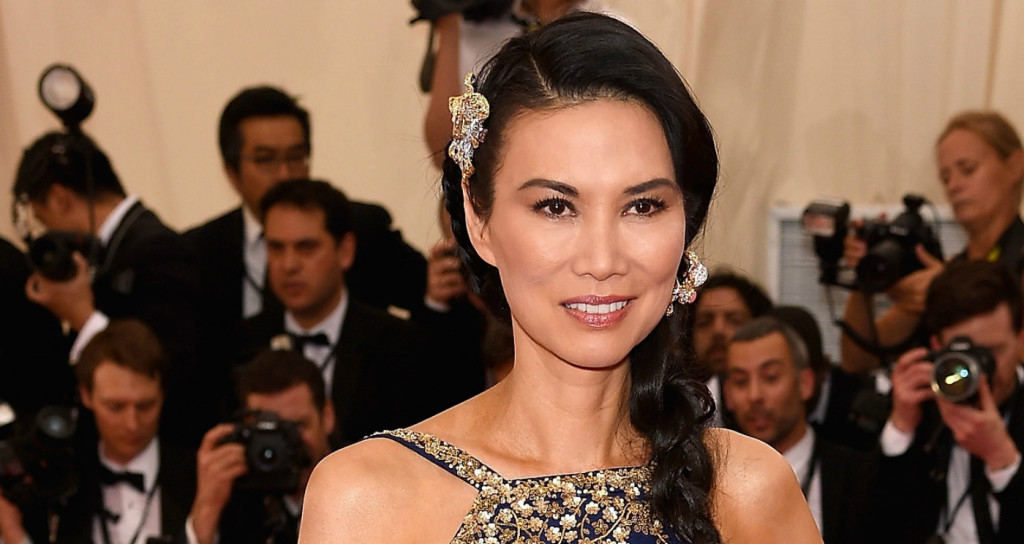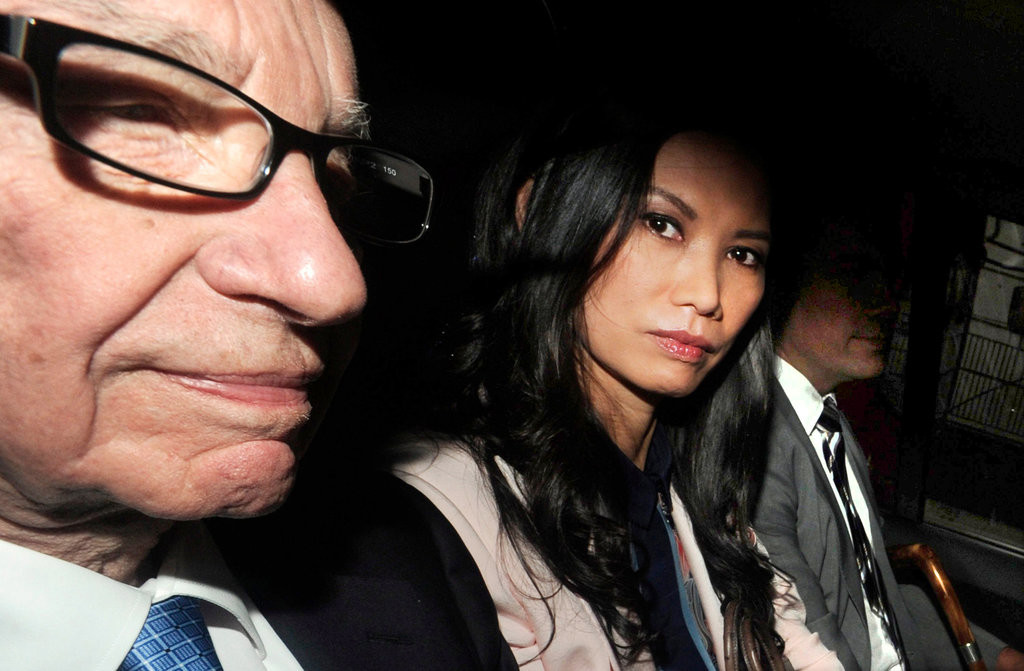Genre: Biopic
Premise: (from Hit List) When an ambitious girl from the slums of China manipulates her way into marriage with a media tycoon, she becomes one of the most powerful women in the Western world. This is the story of Wendi Deng, second wife of Rupert Murdoch.
About: This script barely made last year’s Black List. It should be much higher than it was. And I have a good feeling as to why it wasn’t rated higher, which I’ll tackle later. It did much better on the Hit List, where it finished with 24 votes. There probably isn’t a better writer to tackle this than Amy Wang. She is Chinese-Australian, and completed her directing MFA at AFI in Los Angeles.
Writer: Amy Wang
Details: 127 pages
They’re baaaaaaaa-aaack.
Biopics.
You’re probably wondering why I’m reviewing this travesty of a genre again. Well, to be honest, this is one of the few biopics on the Black List that, when I heard the logline, I was intrigued. A girl rises from the slums of China to become the wife of a media conglomerate worth 20 billion dollars. That doesn’t happen every day.
Also, I’m open to biopics that take non-traditional approaches to either the narrative or the subject. For example, you couldn’t pay me 5 grand – I’m not exaggerating – to read a biopic about Rupert Murdoch. I’d rather dive head first into the world’s largest pool of quicksand. But a story about his wife – I have no idea where that story’s going to go. Which is why I want to read it. Let’s see if my curiosity paid off.
Wen Ge grew up in the slums of Xuzhou, China, the youngest of three sisters. From the second she could speak, Wen Ge dreamt of moving to the glitz and glamour of the U.S. Her sister, Wei, while not as pretty or smart as Wen Ge, is all in on this pact. They’re going to conquer America together.
They get their opportunity in college when an American refrigerator salesman traveling with his wife are trying to expand into China. Wei offers her services as a translator, and soon she and the man are having an affair. When that affair wavers, Wen Ge snatches up the opportunity and begins her own affair with him. She uses the relationship to get to America, and after the salesman divorces his wife, Wen-Ge (now “Wendi”) sees the opportunity for a green card.
Soon she starts working for Star TV, a subsidiary of Rupert Murdoch’s media empire that operates in China. As the only Chinese-speaking employee at the U.S. offices, Wendi easily moves up the ranks. When Murdoch comes into town, Wendi makes sure she’s at his big board meeting. During the meeting, Wendi tells Murdoch everything his company is doing wrong. Nobody has spoken to Murdoch like this ever. He’s immediately smitten with Wendi.
She uses that to become his personal translator, and she uses THAT to woo him romantically. Soon, Murdoch is divorcing his wife, marrying Wendi, and putting her in charge of Myspace China. Nobody around Murdoch likes Wendi. They think she’s a gold digger. And they certainly don’t know why Murdoch is putting her in charge of a billion dollar business. But Wendi is a hustler and determined to prove them wrong. Soon, Myspace is crashing. All the investors she brought in are pulling out. In a last ditch effort to save the company, she sleeps with Prime Minister Tony Blair to insure an investment. But it’s too late. The company dies, Murdoch finds out Wendi cheated on him, and Wendi’s stratospheric rise to the top of wealth and power comes crashing down.
Whoa!
Before reading this, I had no idea who Wendi Murdoch was. Now I’m obsessed with her. I did a 2 hour google deep dive, mainly image searches, where I found all sorts of wild and wacky stories about this woman. I mean, at one point she was dating Vladimir Putin!!! I’ve seen gold diggers (or “power diggers”) before. But this woman is in another league.
First off, I just want to commend the bravery of Amy Wang, the writer of this script. There are unwritten rules in Hollywood right now where, if you write about women, you have to write them a certain way. They can’t have any flaws. They can’t do anything wrong. They can’t be perceived as cruel or selfish. Female characters right now basically have to be written as perfect human beings.
So to build a story around a woman this unlikable and to fully embrace that side of her all the way through the story was a bold move. It was also the right move. The problem you run into when you start writing characters so that you get “points” from certain sections of society, is that they won’t come off as authentic. We will feel you trying to win our affections and we will rebel. There’s a reason the “Girl Power” moment in Avengers: Endgame is so controversial. It didn’t feel authentic. It felt like writers and producers trying to get woke points from Twitter. Everybody has faults. Men, women, children, all of us. To start “playing it safe” is going to lead to bland characters and blander stories. And you’re going to lose out to writers like Amy Wang, who aren’t afraid to be a little more controversial in order to be authentic.
This leads us to our next question: how do you write a hero this evil and get away with it? Wendi steals a boyfriend from her own sister. She parlays that into wrecking a home. She uses the man she stole to get to the U.S. and get her green card. She undermines her boss and all of her co-workers to get an audience with Rupert Murdoch. She cheats on her husband with a prime minister to get a business deal done. She is ruthless. Yet one of the longest-running screenwriting rules is that your hero must be likable. We must want to root for them. How does this script ignore this rule and still work?
My theory is this. And it’s based on what I was feeling while reading the script. You can offset a hero’s un-likability by making them more active. The more unlikable they are, the more active you have to make them. The reason this works is because when a character is extremely active, they’re like a bullet train. They’re shooting forward. And when something shoots forward that fast, the reader wants onto the ride, regardless of how bumpy it gets.
There’s a pivotal moment in “Wendi” where Wendi has strategically positioned herself in front of Rupert Murdoch during a big meeting about Star TV. This is a once in a lifetime opportunity, to get this close to this man. And she’s maneuvered and planned and made sure that she is going to get the best chance possible to make an impression. After Wendi speaks out of turn, asking Murdoch if the station’s recent woes will result in layoffs, Murdoch admits that they will. “I thought so,” Wendi says. “Which is why I came up with 3 plans on how to keep company growth and maintain our stake in the Chinese market. I am available to speak to you privately after this meeting if you are interested.”
This line is the essence of Wendi. She is always dealing. She’s always trying to make things happen. And that’s the real lesson here. Scripts are no different from life. In life, when you go out there and try to do things, opportunities open up. When characters go out there and try to do things, PLOT opportunities open up. You’re more likely to find fun exciting places for your story to go when your hero is running around trying to make things happen.
While I refuse to give this script an impressive, due to the fact that it’s a biopic, it basically gets a biopic ‘impressive’ at a double worth the read. This character was savage, she was relentless, she was fascinating.
[ ] What the hell did I just read?
[ ] wasn’t for me
[xx] worth the read
[ ] impressive
[ ] genius
What I learned: If there’s a genre where you can push the boundaries of how unlikable your main character is, the biopic is it. I’m not sure why this is. I think it has something to do with the audience understanding that this is a real person’s life and, therefore, they don’t care as much about liking them. As long as the character’s actions are authentic and entertaining, likability is not required.



